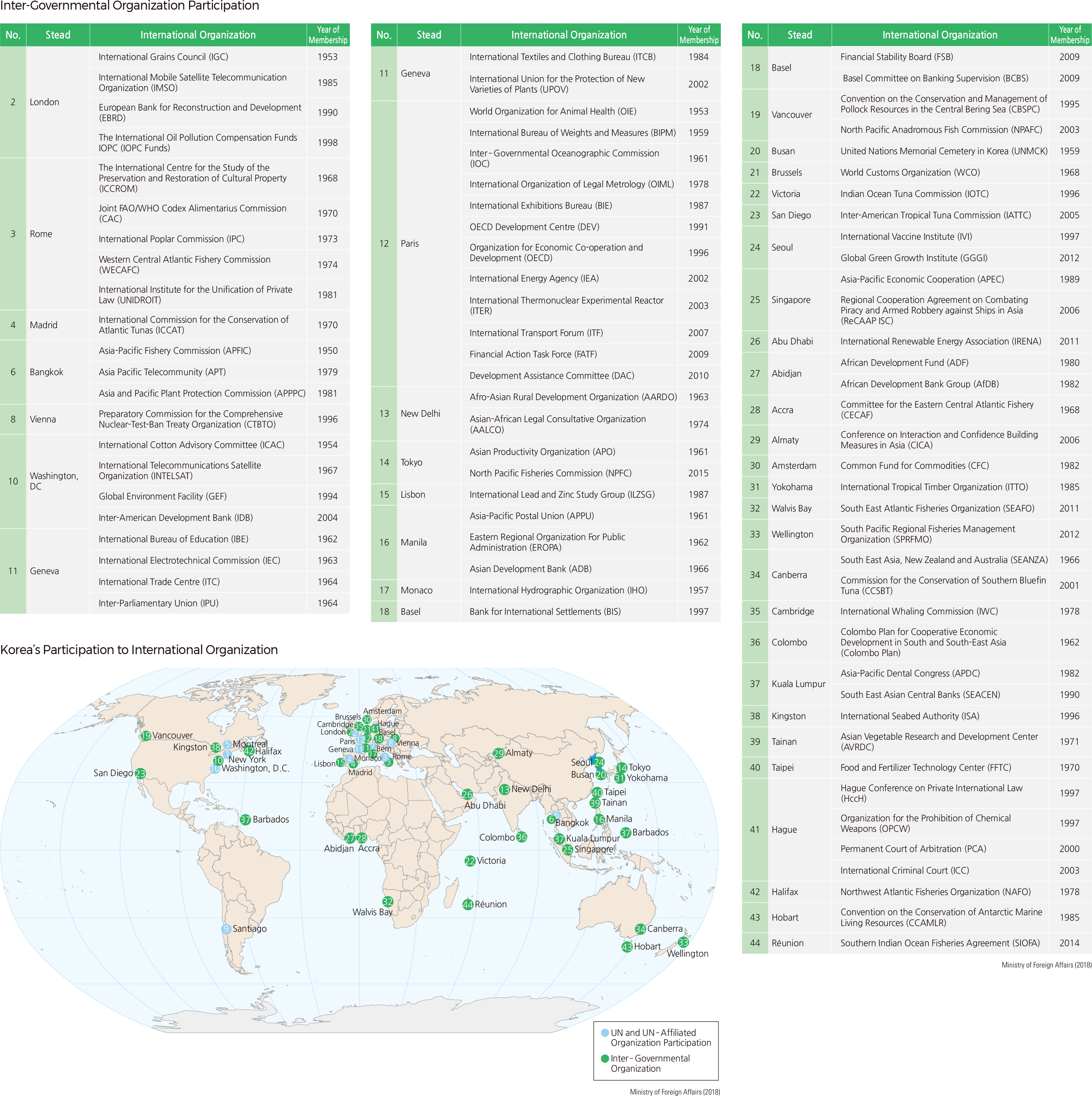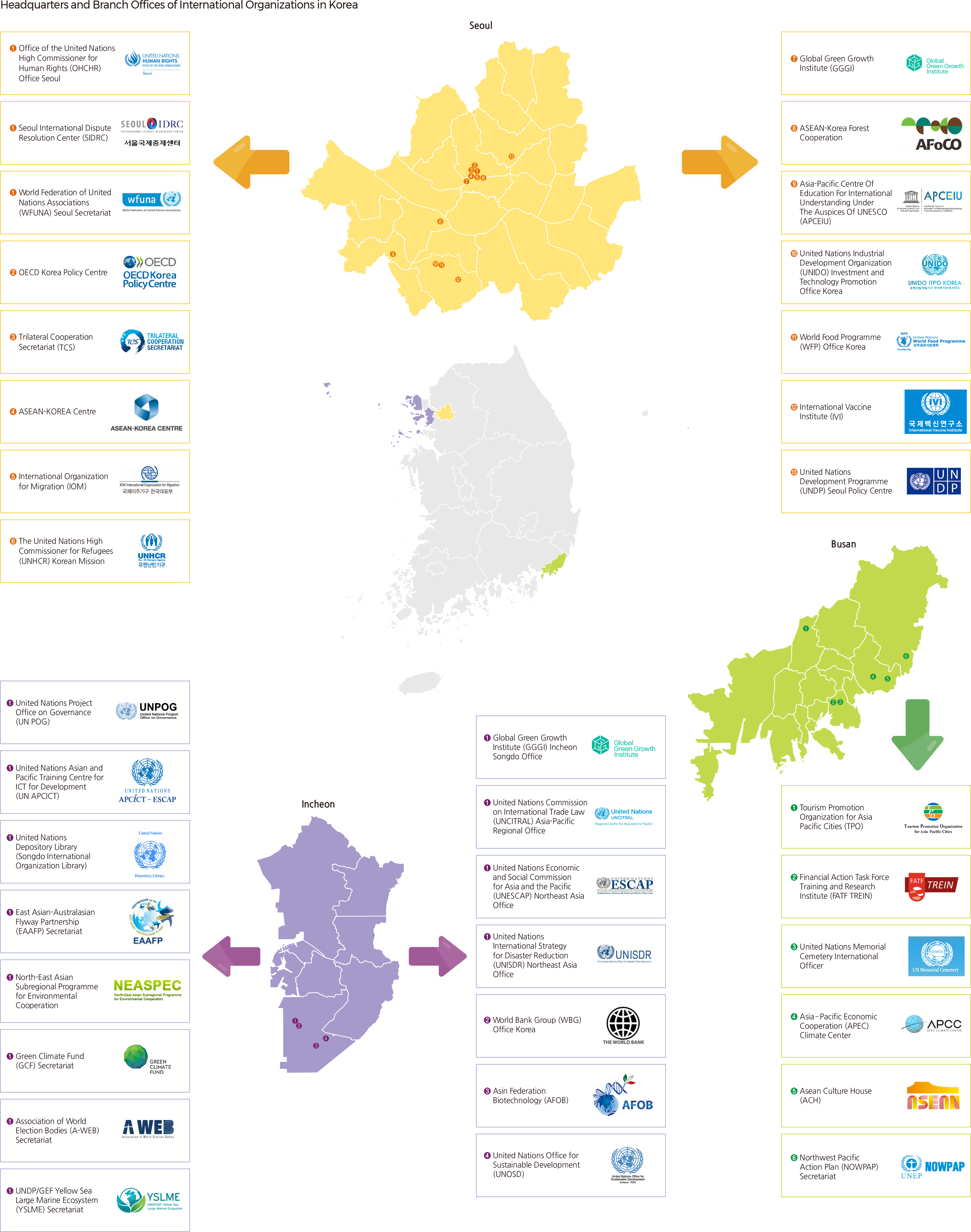English I 2019
The United Nations (UN) has played an important role in Korea's diplomacy since the Korean government was established in 1948. In 1949, Korea joined the Food and Agriculture Organization (FAO), the Universal Postal Union (UPU), and the World Health Organization (WHO). As shown on the map, the number of UN or UN-affiliated organizations that Korea has joined has reached 26.
When Korea became a member of the United Nations in 1991, the nation found itself in a better position for international cooperation. Korea has also served as a non-permanent member of the UN Security Council and as a member of the Economic and Social Council (ECOSOC). In addition, Korea served as the chair of the 56th UN General Assembly. In 2007, Ban Ki-moon from Korea was inaugurated as the 8th secretary-general of the United Nations.
As of 2018, Korea has also joined 91 intergovernmental organi-zations for multilateral collaboration to deal with international issues in the global economy, resource development, international cooperation and development, disease control, and environmental protection.
The increasing transnational movement of people, goods, and information demands that all countries work together. Korea has promoted hosting international organizations, resulting in many headquarters or branch offices. Seoul, Korea’s capital, hosts six headquarters. Incheon and Busan host 10 and 3 headquarters, respectively. Among these, the Global Green Growth Institute (GGGI) and International Vaccine Institute (IVI) deserve attention for the vital role they play in the world. GGGI is the first international organization initiated by the Korean government. It was established in 2010 to help less developed countries integrate economic growth with environmental sustainability. It located its branch offices in the major world cities in 2011 and was officially approved during the 2012 United Nations Conference on Sustainable Development (Rio+20). In addition, IVI was established as a nonprofit international organization in Seoul in 1997. It dedicates itself to vaccine research and development, which in turn enables more efficient and affordable distribution of immunizations in less developed countries.
|


